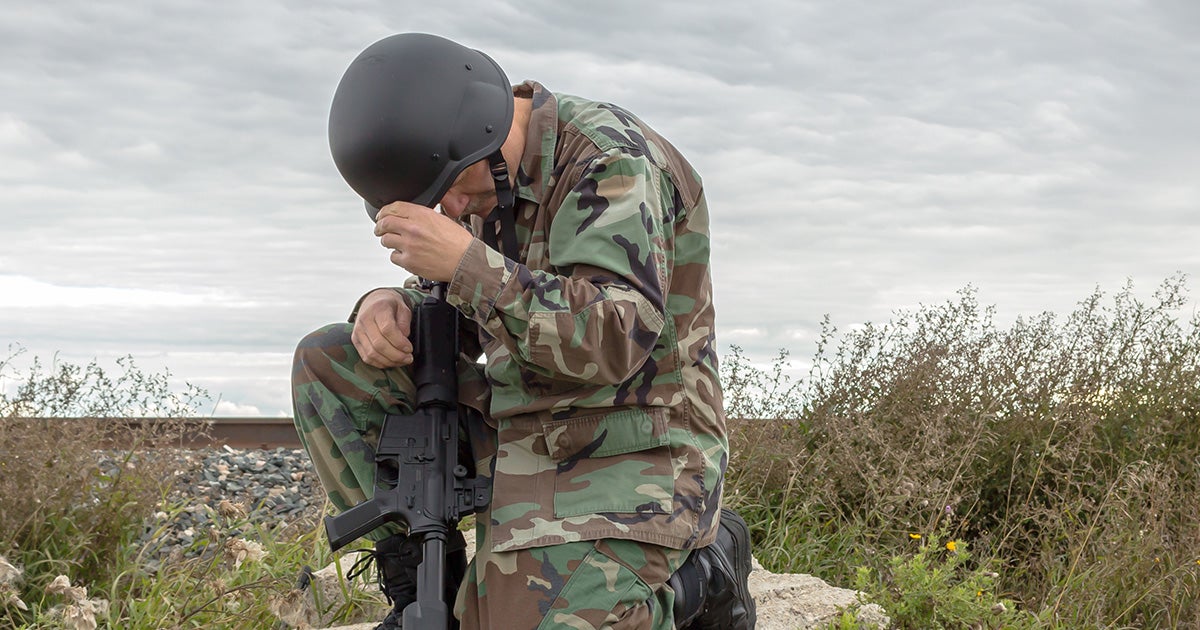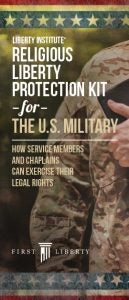
by Catherine Frappier • 5 min read
As Americans, we cherish and honor our military service members for the sacrifices they make to keep us safe and to protect our religious liberty and all the other fundamental freedoms in our Constitution.
But today, religious liberty within America’s armed forces is under heavy fire, even though the law clearly favors and safeguards it for our men and women in uniform. That’s why service members and their families must know their rights and be equipped to defend them.
As the experts on religious freedom, our legal team is giving you three important things you must know about religious liberty. And if you haven’t already, we encourage you to get your free copy of our Religious Liberty Protection Kit for the U.S. Military, a handy resource you can take anywhere and keep with you to ensure that your rights as a military service member aren’t violated or trampled.
The Religious Freedom Restoration Act (RFRA), made law by the federal government in 1993, ensures that the government must meet a two-pronged test in order to justify laws or regulations that affect religious liberty: (1) the law or regulation must further a compelling governmental interest; and (2) it must be the least restrictive means possible of achieving that compelling interest.
To put it plainly, this federal law is just as applicable to the military as to civilian life. While the military is a unique environment in which individual rights may be applied differently, RFRA still stands, and so does the Constitution.
Department of Defense (DOD) policy explicitly and broadly protects religious liberty. According to Department of Defense Instruction 1300.17, Accommodation of Religious Practices Within the Military Services (2014), the Department of Defense places a high value on the rights of members of the Military Services to live out their faith.
In general, DOD policy allows members of the military to live out their faith and to serve according to their religious beliefs unless it negatively impacts the military’s mission. And military policy isn’t something to take lightly – to violate military policy is to break federal law.
While some may claim the military requires the strict “separation of church and state,” history says otherwise. Religion has played a role in the armed forces for centuries. From chaplains to religious services, the role of faith is part of American military heritage.
In fact, nearly 70% of service members are persons of faith. Many of them are willing and driven to serve their country because of their religious beliefs – so it’s puzzling why some would want to deny their religious liberty rights.
Our opponents distort the First Amendment and claim that it does not allow for faith or religious expression in the military. But that’s just not true. The Constitution does not require the banishment of religious influence from the military, or from public life as a whole.
Right now, as attacks on military members’ religious freedom continue to rise, we encourage you to take these three critical facts and share them with anyone you know that is currently serving – or anyone who’s retired – from the military.
With this information, you can help defend and protect the rights of those who sacrifice and who risk their lives for our freedom.
But this is only the surface of the many protections that are given to members of our armed forces. You and millions of Americans and military families are asking very important questions:

Find the answers to your questions about religious liberty in our nation’s armed forces by downloading First Liberty’s free Religious Liberty Protection Kit for the U.S. Military.